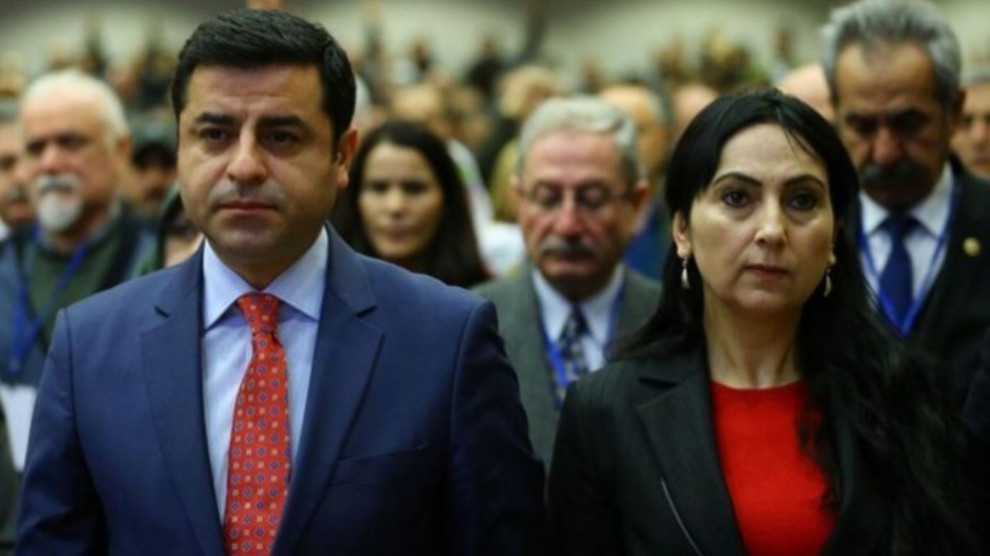Demirtaş and Yüksekdağ remain in prison
Figen Yüksekdağ and Selahattin Demirtaş are accused of “inciting people” during the protests for Kobanê in October 2014.
Figen Yüksekdağ and Selahattin Demirtaş are accused of “inciting people” during the protests for Kobanê in October 2014.

The former co-chairs of the Peoples’ Democratic Party (HDP), Figen Yüksekdağ and Selahattin Demirtaş, remain hostage. On Monday, a court in Ankara made a review and ruled against the release of two politicians. The 8th Penal Court of Peace in the Turkish capital justified its decision with the risk of flight. Meanwhile, it is still unclear when the trial against Yüksekdağ and Demirtaş will start, as the indictment has still not been prepared.
Former HDP co-chairs Figen Yüksekdağ and Selahattin Demirtaş were arrested on November 4, 2016, at the same time as numerous other members of their party and subsequently imprisoned. Since then they have been in prison in Kandira and Edirne respectively. Last September, the arrest warrants against both politicians were surprisingly revoked. At the instigation of Turkish President Recep Tayyip Erdoğan, however, the proceedings for "spreading hatred and incitement to violence" were reopened and a new arrest warrant obtained. Erdoğan said: "We cannot release them. They have infiltrated the parliament. Our nation does not forget those who have called people to the streets and murdered our sons. We will persecute them and never let them go." The trial includes charges of attempted "destruction of the unity and integrity of the state", "incitement to looting for the benefit of a terrorist organization" and "deprivation of liberty".
Kobanê protests in October 2014
On the evening of October 6, 2014, after 21 days of resistance by the local defense units YPG/YPJ as well as the largely Kurdish population, the jihadist militia ISIS succeeded in penetrating the center of the northern Syrian city of Kobanê. In view of the critical situation in Kobanê, the HDP called on the people of Northern Kurdistan and Turkey to protest indefinitely against the AKP government, as it did not end its support for the ISIS. In the course of this, there were downright street clashes between Turkish security forces and the protesters in many cities: Soldiers, policemen, village guards as well as members and supporters of the radical Islamist Hezbollah led a common fight against Kurds who participated in the protests. The number of people killed, most of whom were participants in the uprising, fluctuated between 46 and 53. Politicians from the AKP camp repeatedly refer to the assertion that Demirtaş and Yüksekdağ were responsible for the deaths of these people.